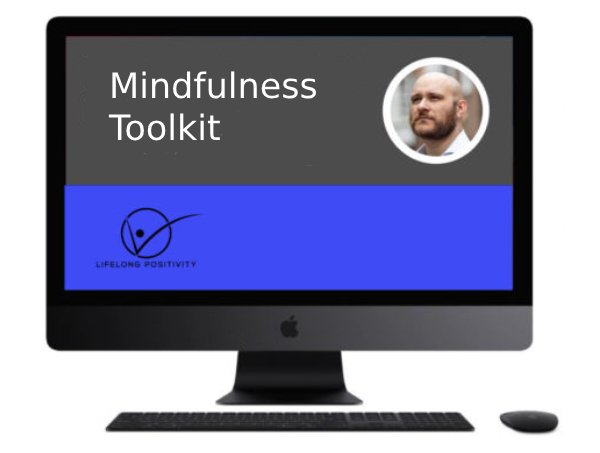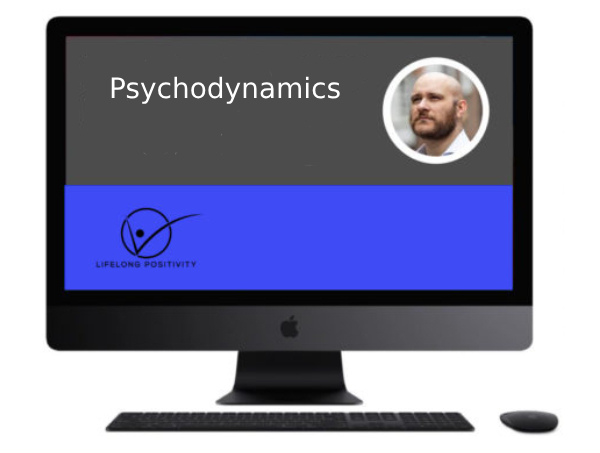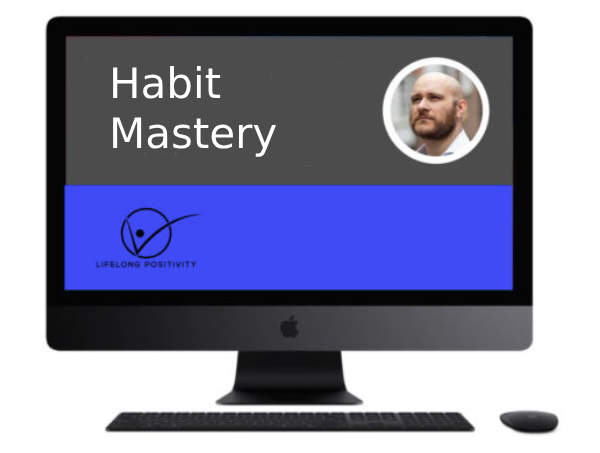Products

Positive Psychology course
Contents:
1. Introduction to Positive Psychology:
This section provides an overview of positive psychology as a scientific study of human well-being, focusing on strengths, virtues, and factors that contribute to a fulfilling life. Students explore the history, theories, and key figures in the field, contrasting it with traditional psychology’s focus on pathology.
2. Positive Emotions and Subjective Well-Being:
In this module, students delve into the role of positive emotions in enhancing well-being. Concepts like gratitude, joy, hope, and contentment are explored in depth. The course examines how cultivating positive emotions can contribute to improved mental health and life satisfaction.
3. Character Strengths and Virtues:
This part focuses on identifying and developing individual character strengths and virtues. Students learn about the VIA Classification of Character Strengths and explore how leveraging these strengths can lead to personal growth, resilience, and the pursuit of meaningful goals.
4. Flow, Engagement, and Optimal Experiences:
This module delves into the concept of “flow” – a state of deep engagement and focus in activities. Students study how experiencing flow contributes to a sense of purpose and well-being. The course also covers strategies to foster flow and engagement in various aspects of life.
5. Positive Relationships and Well-Being Interventions:
The final segment explores the impact of positive relationships on well-being and overall life satisfaction. Students learn about the importance of social connections, empathy, and effective communication. Additionally, the course introduces evidence-based interventions and practices that can enhance positive emotions and psychological flourishing.
£59.99
mindfulness toolkit
Contents:
1. Introduction to Mindfulness:
This section provides an overview of mindfulness as a contemplative practice rooted in Buddhist traditions. Students learn about the core principles of present-moment awareness, non-judgment, and acceptance. The historical context and the evolution of mindfulness into secular applications are explored.
2. Developing Mindful Awareness:
In this module, students delve into mindfulness techniques and exercises that help cultivate present-moment awareness. Breath awareness, body scanning, and sensory grounding exercises are introduced. Participants learn to observe their thoughts, emotions, and sensations without attachment or avoidance.
3. Managing Stress and Emotions:
This part focuses on applying mindfulness to stress reduction and emotional regulation. Students explore how mindfulness can help them better understand and manage their reactions to stressors, anxieties, and negative emotions. Mindful coping strategies are taught to enhance resilience and emotional well-being.
4. Mindful Communication and Relationships:
This module addresses how mindfulness can improve communication skills and relationships. Students learn to practice active listening, empathetic communication, and non-reactive responses. Mindfulness is applied to enhance empathy, reduce conflicts, and foster deeper connections with others.
5. Integrating Mindfulness into Daily Life:
The final segment emphasizes the integration of mindfulness into everyday activities. Students explore how to apply mindfulness while eating, walking, working, and engaging in routine tasks. The concept of “mindful living” is introduced, encouraging participants to lead a more conscious and purposeful life.
£49.99


psychodynamics course
Contents:
1. Introduction to Psychodynamics:
This section covers the foundational concepts of psychodynamics, exploring the historical development of the field and the key contributors such as Freud, Jung, and Erikson. Students gain an understanding of the unconscious mind, defense mechanisms, and the role of early experiences in shaping personality and behavior.
2. Structures of the Mind:
This part delves into the tripartite model of the mind proposed by Freud, consisting of the id, ego, and superego. Students learn how these structures interact and how conflicts between them can lead to psychological distress. The exploration of the conscious and unconscious aspects of the mind is a central theme in this segment.
3. Defense Mechanisms and Coping Strategies:
In this module, students examine various defense mechanisms that individuals employ to protect themselves from anxiety and inner conflicts. Examples include repression, denial, projection, and sublimation. The course explores how these mechanisms impact behavior, relationships, and emotional well-being.
4. Developmental Stages and Psychosexual Theory:
This part of the course focuses on Freud’s theory of psychosexual development, which posits that personality is shaped by a series of stages related to sexual development. Students analyze how successful resolution of conflicts at each stage contributes to psychological health, and how unresolved issues can lead to fixation and personality disturbances.
5. Application and Critique:
The final segment involves applying psychodynamic principles to real-world scenarios. Students learn how to conduct psychodynamic assessments, interpret dream symbolism, and apply insights to therapy settings. Additionally, critical discussions regarding the strengths and limitations of the psychodynamic approach in modern psychology are encouraged, exploring its relevance in contemporary therapeutic practice.
£49.99
identity shifting course
1. Understanding Identity Shifting:
This section introduces the concept of identity shifting as a process of curating values and crafting stories. Students explore how identities are multifaceted and influenced by cultural, social, and personal factors. The course provides a foundation for understanding why and how identity shifting occurs.
2. Exploring Identity Dimensions:
In this module, students delve into the various dimensions that contribute to a person’s identity, such as cultural, gender, professional, and social identities. Through case studies and discussions, students analyze how these dimensions can intersect, overlap, or conflict, leading to opportunities for identity shifting.
3. Cognitive and Emotional Aspects of Identity Shifting:
This part focuses on the psychological processes involved in identity shifting. Students study how cognitive flexibility, self-awareness, and emotional regulation play a role in successfully transitioning between different identities. The course addresses challenges and strategies for managing potential conflicts or discomfort during identity shifts.
4. Practical Strategies for Identity Shifting:
In this module, students learn practical techniques and strategies to navigate identity shifting effectively. Role-playing exercises, reflective journaling, and communication techniques are introduced to help individuals adapt to different social contexts, roles, or life transitions.
5. Ethical Considerations and Self-Integration:
The final segment of the course explores the ethical implications of identity shifting, including issues related to authenticity, cultural sensitivity, and ethical dilemmas that can arise. Students also examine how to achieve a sense of coherence and integration across different identities, fostering a more congruent and harmonious self.
£69.99


habit mastery
1. Understanding Habit Formation:
This section introduces the psychology behind habit formation, highlighting the role of cues, routines, and rewards in creating automatic behaviors. Students explore the Habit Loop model, gaining insights into how habits are ingrained in daily life.
2. Identifying Current Habits:
In this module, students learn to identify their existing habits, both positive and negative. Through self-assessment and reflection, they uncover patterns that influence their behavior. This step is crucial for self-awareness and initiating positive change.
3. Strategies for Habit Change:
This part focuses on practical strategies for modifying habits. Students delve into techniques such as habit stacking, setting SMART goals, and creating implementation intentions. They also learn about the importance of starting small and gradually building momentum.
4. Maintaining Consistency and Resilience:
This module covers the challenges that arise during habit change and how to maintain consistency. Students explore techniques for dealing with setbacks, building resilience, and avoiding common pitfalls that can derail progress.
5. Lifestyle Integration and Long-Term Mastery:
The final segment addresses how to integrate new habits into one’s lifestyle for long-term mastery. Students examine how habits contribute to personal growth, well-being, and achieving larger life goals. The course emphasizes the importance of ongoing self-monitoring and adjustment.
£49.99
F.A.Q.
Life coaching is the process of transforming one’s life from insight into action.
First we look at where you are, and determine where you want to get to. Once we know the destination, then we look at what is stopping you getting there, and how we can move you forward.
I use a variety of tools and techniques including but not limited to Neuro-linguistic Programming (NLP), Cognitive Behaviourial Therapy (CBT) and the TGROW coaching model. I also draw from my rich life experience from my days as an entrepreneur, addiction recovery, as well as the extensive coaching and personal development work I’ve done myself.
Therapy is more focused on mental health, and transforming dysfunctional behaviours into functional ones. It tends to involve a lot of focus on the past.
Life Coaching, however, is more focused on moving forward and creating your future. Imagine you are in a car at point A. The process of my coaching is about determining where point B is for you, helping you determine the best route to get there, and seeing if there are any blockages in the engine of the car (such as limiting beliefs).
There may be some overlap with certain therapy and life coaching styles such as exploring your psyche. My life coaching tends to only revisit the past in an almost surgical way of rewriting old core beliefs, whereas therapy tends to focus exclusively on the past.
It should be stressed that life coaching is not a replacement for professional psychological help. If you believe you are suffering from mental health issues, you should first speak to your doctor as a first port of call.
Yes. I have a BSc (Hons) and CTAA Accredited Diplomas in Life Coaching as well as NLP (Neuro-Linguistic Programming).
